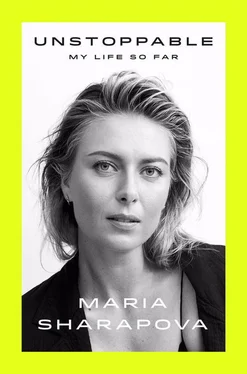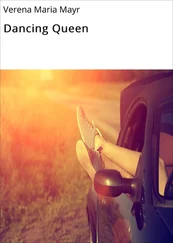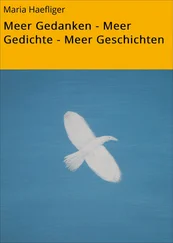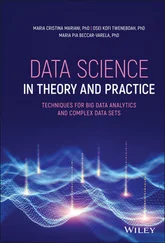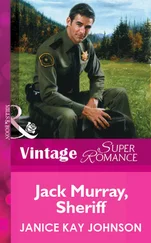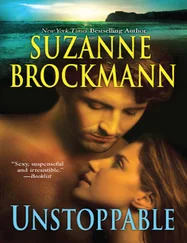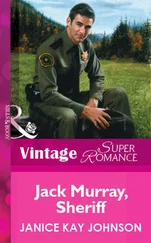I missed too many tournaments while rehabbing my shoulder. My ranking, which had been near the top, fell into the high double digits. I’d had to skip the Australian Open, meaning I could not defend my 2008 title, which really stunk. It meant I wouldn’t get to walk through that tunnel and see a picture of me holding up the big trophy beside all the previous champions.
I did not begin really playing again until March 2009. I started in the dregs. My shoulder hurt, my body disobeyed my mind, my serve did not exist, and I tired easily, but I was determined to scrap my way back into the game. Nothing makes you want something more than having it and losing it. Until I got that top ranking, I hadn’t realized how much I’d wanted it. Now, more than anything, I wanted it back.
The French Open was to be my reemergence on the scene. That’s what I was training for, but I felt just awful. The bottom came in May at a small tune-up tournament in Warsaw, Poland, on the worst clay courts I had ever seen. I did not want to play in it, but I had to get through some matches. I couldn’t go into the French Open cold turkey. I won maybe two matches, losing in the quarters, in a match I could’ve won convincingly at any other point in my career. The winner was Alona Bondarenko, a Ukrainian. After the match, I watched her give her press conference. I remember every word she said, like it was yesterday. Maria has lost the speed on her serve; Maria has lost her power; Maria has lost her game; Maria is not what she used to be; blah blah blah. I remember seeing those lines run across the bottom of the screen on CNN. That was just the fuel I needed. That’s the kind of thing that gives you motivation. Of course I wanted to win the French Open and Wimbledon. But now it was more than that. It wasn’t just that I wanted to win. It’s that I wanted to make Alona Bondarenko eat those words.
The French Open was a disaster. That’s how I remember it, anyway. When I look back at the stats, the story seems a little more complicated. The fact is that in my first Grand Slam postsurgery, I made it to the quarterfinals, playing some good matches and beating some good players to get there. But I tend to really remember only how things ended. Were you playing on the last day, or were you already in the next town while the focus of the tennis world was on someone else? I lost a terrible match in straight sets. I managed to win only two games. I should have been all right with the result, as it was just my second tournament back, but I wasn’t happy with the tournament and I was very unhappy with that final match. It was a low point, utterly deflating. After a match like that, you go back to the locker room and scream.
My diary:
Ever since the Open, I am walking around with a huge doubt on my shoulders. I go into my press conference and the first question is… “People are saying you’re not making progress. Why is that? Do you think you need a new coach?” Seriously, why the fuck do you care, why does anyone care? It’s as if these people were scientists, that they think they know everything! Get a life!
I eventually made my way to Wimbledon. I was hopeful when I arrived in town because Wimbledon had always been a magical place for me. Whenever I’d been down, that town and those grass courts and that tournament had always brought me back up. It had been like pixie dust. Well, not this time. It was an upside-down world. Whatever had been good turned out bad. This was the real rock bottom. Maybe I wanted it too much. Maybe I had pushed too hard. I made it through the first round, beating a qualifier but having to work hard to do so, and lost in the second round to an unranked Argentinian player named Gisela Dulko. It was one of my quickest exits from a Grand Slam ever. Before I had even unpacked my bags, I was back on the plane, heading home. The sportswriters were busy writing obituaries on my career. I was twenty-two years old. It had been a good life, but now it was over.
As soon as I got in from the airport, I took out my diary and began to write:
Well, I am finding myself back home on a Thursday the first week of Wimbledon. Yep, it pretty much sucks. To be honest there’s such a mix of thoughts and feelings. On the one hand it’s pretty amazing to think that my arm has held up as well as it has. I really didn’t believe I was ready to play at such a tough level, four tournaments in a row. And yet for some reason I feel like someone kicked my dog. Of course it’s Wimbledon, and I don’t like to lose. Then I’m at the airport this morning buying one of those stupid gossip magazines with every paper staring me down with my face on the cover, the headlines saying, “It’s All Over for Sharapova”! Fuckers! Then I get on the plane and they’re asking if I want a paper every two seconds. Then the lady in front of me is reading the sports section. And there it is again. “It’s All Over for Sharapova.” All of a sudden women decide to start reading the sports section on that particular day?
Who can you turn to in such a confusing time?
For most people, it’s friends from work, all those people in the office, but I am not friends with many people from my “office.” Not because I do not like them, but because in our world, it’s very difficult to be friends with another player. These are your opponents on the court, and being friends with them is giving away one of your advantages. If I like you, I’ll have a harder time putting you away. I don’t believe I’m the only player who feels this way, but I am one of the few who will admit it. When I see two players all buddy-buddy on the tour, I know that friendship will always have its limits. I’d rather live honestly and be truthful than put on a phony show for the press. In the tough times, it’s my family I turn to, and to the few genuine friends that I have made over the years—not my rivals.
Of course, there’s also the comforts of boyfriends. When I look back at my diary, I see, scattered between the positive-thinking exercises and dark ruminations, the constant discussion of crushes and would-be boyfriends, as well as my general thoughts on romance. In my early years on the pro tour, I was amazed by the way I seemed to attract the attention of grown men. It was funny to me, probably because I still felt like a kid.
I was always interested in the question of what sort of guy would best suit me: “Who would I consider the one ?” I wondered in my diary as a teenager.
First he has to understand and respect the business I’m in. And he has to have his own purpose in life. He has to be down to earth meaning if he has millions of dollars then you wouldn’t be able to tell. He has to have a sense of humor because I love to laugh. He has to be affectionate, caring, and sweet. He has to be open-minded about things like telling me the truth, because I hate people who have secrets. And most importantly he has to love me for the person I am on the inside rather than on the outside. But I still like the bad boys. Even though I know it’s trouble. I want to fix them and take them home. I love challenges.
I didn’t date seriously until I was nearly twenty-two years old. It was the end of 2009. A friend of mine was preparing a casual barbecue at her house on a Saturday, and she called me up a few hours beforehand to say I needed a distraction, could she invite someone to come who might have potential?
I said “Sure,” not really understanding her intention.
He walked into her house in the middle of dinner with hair still wet from the shower, in sports gear, ice wrapped around both knees. I liked him immediately. Saturday night, and he’d just finished practice? That’s my type of person.
His name was Sasha Vujačić. He was a Slovenian basketball player in his fifth year with the L.A. Lakers. That night we ate grilled fish fillets and talked, then exchanged numbers.
Читать дальше
